Qarawat Bani Zeid 13 November 2006
Omar is about 10 years old, and the eldest son of Khaled, the regional coordinator for the Salfit Mobile Health Clinic, which is local outreach primary care health project sponsored by Palestine Medical Relief Society. PMRS is a Non Governmental Organization (NGO) funded by the European Union (EU) to deliver services to rural and other under-served populations in Palestine.
I hope you like our little village!
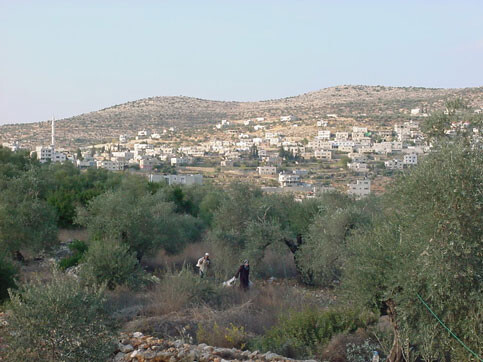
Here is my village of Qraawa-Beny-Zed, between the towns of Ramallah and Salfit in Palestine.
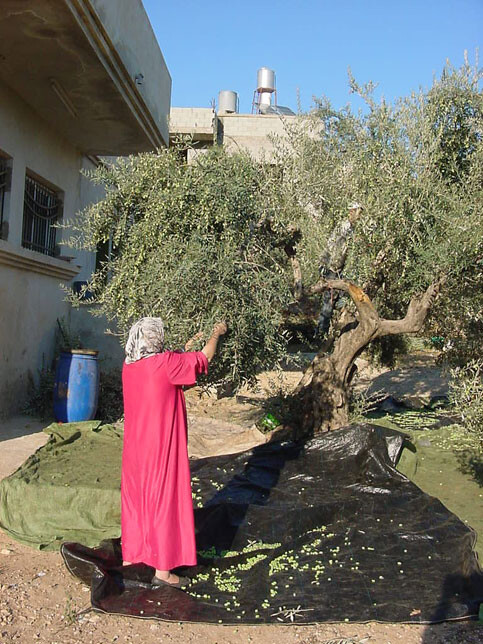
To harvest olives, first you have to put a tarp around the tree, so when the olives drop, it is easier to collect them.

My father, Abu Omar, shows you how to do it: you shuck the olives from the small branches and let them fall on the tarp.

Sometimes you have to climb the tree to reach the branches that are too high.
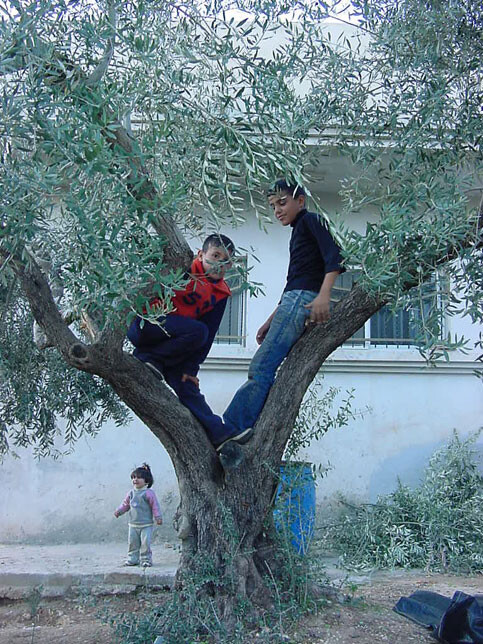
My brother and cousin practice climbing up the tree.
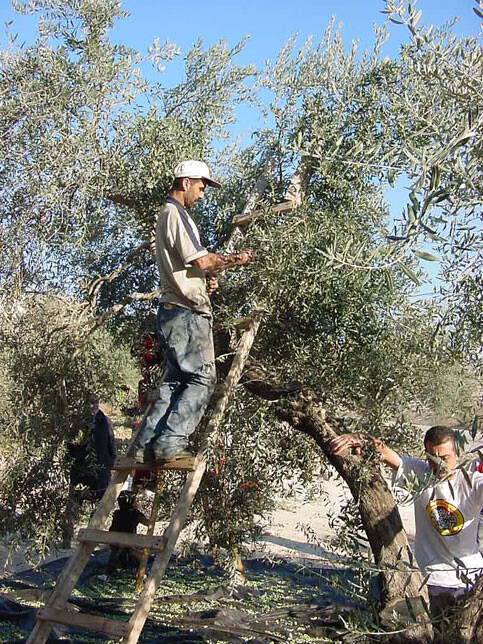
My Uncle climbs the ladder to reach the olives that are really too high.
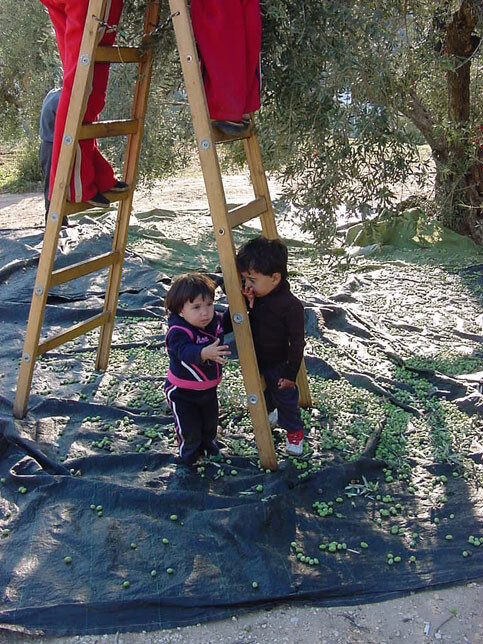
Here, my cousins are holding the ladder for my Aunts.

One of my cousins is too small to hold the ladder.

Then we gather the olives on the tarp, like this.

The pickers are taking a coffee break because they are tired. That’s Dr. Bill from America in the middle. He has a good heart. He came to help us pick olives too, but he is very, very slow!

Green and black olives come from the same tree; the black ones have been on the tree too long, but they are still very good to eat!
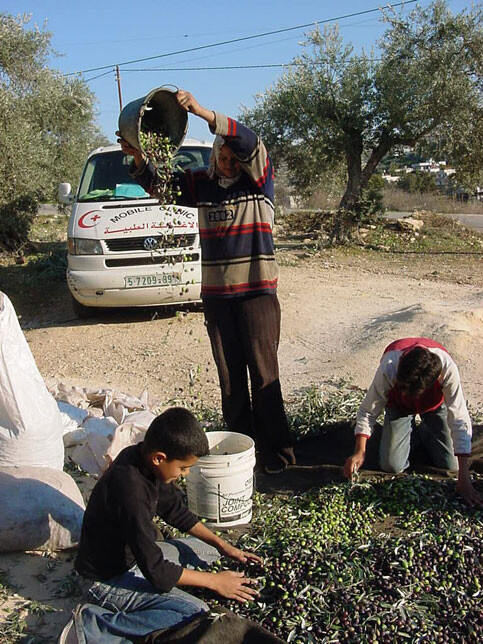
Then you have to separate out the olive leaves from the olives and put them in buckets.

That’s my little sister Ruwan. She is only two.

Here is my other brother and another one of my cousins. Did you know that olive branches are a symbol of Peace?
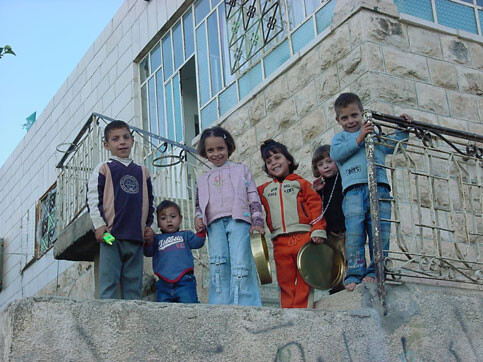
Those are the neighbor children who live next to us.

Then we put the olives in bags. The sacks are too heavy, so donkeys carry them to the road. Then we take them in a van or a truck to the market.

48 &56)Sometimes we take them to the mill and make olive oil too.

More olive oil production.

And we make bricks of olive pulp to burn as fuel to help us keep warm at night in the winter.
Dr. Bill Dienst is a rural family and emergency room physician from Omak, Washington, USA.





